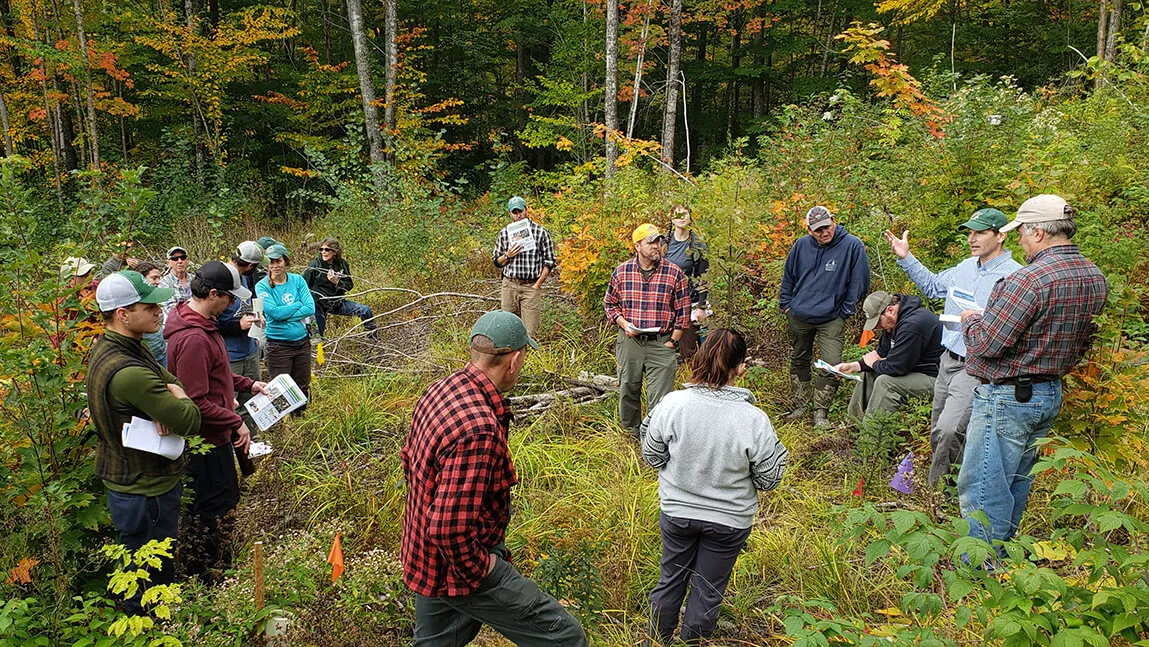Climate change, invasive insects, and new diseases increasingly challenge ecosystems and forest managers across the Northern Forest. A new project, to be led by University of Vermont professor Tony D’Amato, will help managers and communities across the region apply best practices for enhancing forest resilience to these impacts—while also sustaining wildlife habitat, carbon storage, and local forest-based economies.
The project will be funded by the Northeastern States Research Cooperative (NSRC), which recently announced 12 grants totaling nearly $2 million of federal funding, and over $1 million of matching funding, for research across each of the four Northern Forest states: Vermont, Maine, New York, and New Hampshire. The NSRC’s lead institution in Vermont is UVM within the Rubenstein School of Environment and Natural Resources.
With funding from the U.S. Congress, collaboration with the U.S. Forest Service, and advice from the public and private sectors, NSRC-funded projects work to transform research results into practice.
“Our forests, including the Northern Forest, are a key part of the struggle to limit the effects of the climate crisis on both ecosystems and rural communities. At the same time, global climate change is already impacting our forests and the economies that often depend on them,” Senator Patrick Leahy (D-VT) said, in celebrating this round of NSRC funding.
“For most of the past 20 years, the universities and scientists that make up the Northeastern States Research Cooperative have helped us understand the Northern Forest ecosystem. I’m pleased by how this round of projects point to work that has evolved in response to the challenges to the ecosystem itself and the communities connected to it.”
D’Amato, a professor in the Rubenstein School and director of UVM’s Forestry Program—working with a UVM master’s student and undergraduate technician — will examine forest outcomes for varying strategies to document forest management approaches that provide the greatest adaptation potential for northern hardwood, mixedwood, and spruce-fir ecosystems.
The UVM team—in collaboration with federal, state, Tribal, private, and NGO forestry leaders—will produce site-tailored recommendations on best adaptation practices.
The UVM project is part a larger NSRC suite of efforts that include researchers in the four Northern Forest states who will develop more than 30 experiments and demonstrations across the region to gain a better understanding of how forest adaptation strategies address emerging forest health and climate change impacts.
“We are fortunate to have the opportunity to continue working with regional partners in co-producing applied science that addresses the grand challenge of sustaining the Northern Forest in the face of global change,” said D’Amato. “The funding from NSRC will be critical to advancing our understanding of the ecological outcomes of new forest adaptation strategies, and it will ensure our findings are relevant for forest managers and other partners.”
D’Amato is the principal investigator in the project “Implementing forest adaptation options for Northern Forest ecosystems.”
For more information on the NSRC and its research projects, visit the Rubenstein School of Environment and Natural Resources.
